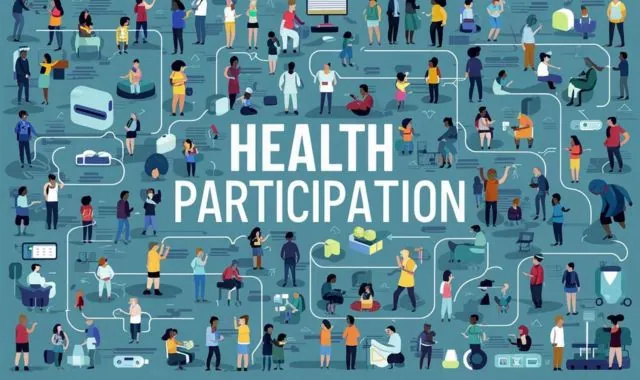Physical Address
304 North Cardinal St.
Dorchester Center, MA 02124
Physical Address
304 North Cardinal St.
Dorchester Center, MA 02124

Health technology (health tech) offers a revolution in wellness. From wearable fitness trackers to AI-powered diagnostics, health tech empowers individuals to manage their health and improves healthcare delivery. Challenges include data privacy and accessibility, but the future holds promise with smart homes, personalized medicine, and preventative care. Let health tech be your partner on the path to a healthier you.

Imagine a world where your health is constantly monitored, nudged towards improvement, and supported by intelligent tools right in your pocket. This is the exciting future promised by health technology, a rapidly evolving field that’s transforming how we approach wellness.
Health technology, or health tech for short, encompasses a wide range of digital tools and devices designed to improve our physical and mental wellbeing. This spectrum of innovation includes:
From fitness trackers that monitor steps and heart rate to smartwatches offering sleep analysis and stress management, wearables are revolutionizing how we track our health metrics.
This technology allows for remote consultations with doctors and specialists, making healthcare more accessible and convenient.
AI is making waves in healthcare, analyzing vast amounts of data to predict health risks, personalize treatment plans, and even assist in disease diagnosis.
Health tech isn’t just about fancy gadgets; it’s about empowering individuals to take charge of their health. Here’s how:
Health trackers and apps can help you monitor key metrics like sleep patterns and activity levels, allowing you to identify areas for improvement and make proactive lifestyle changes.
Health tech tools can help individuals with chronic conditions like diabetes or heart disease track their vitals, manage medications, and stay connected with their healthcare providers.
Mobile apps offering mindfulness exercises, meditation guidance, and access to mental health professionals are making it easier than ever to prioritize mental wellbeing.
AI-powered health tech can analyze your unique health data to identify potential risks and facilitate early detection of health issues.
Health tech can help create personalized treatment plans based on your specific needs and provide medication reminders to ensure adherence.

The benefits of health tech extend far beyond individual users, impacting the healthcare system as a whole:
Telehealth consultations can reduce hospital overcrowding and allow doctors to see more patients.
Telehealth and remote monitoring can make healthcare more accessible in remote areas and potentially reduce overall healthcare costs.
Health tech facilitates the sharing of patient data between healthcare providers, leading to more collaborative care and data-driven decisions.
With all its promise, health tech also presents challenges that need to be addressed:
Ensuring the privacy and security of sensitive health data is paramount.
Not everyone has access to smartphones or the internet, potentially widening the healthcare gap.
AI algorithms can perpetuate biases present in the data they are trained on.
The future of health tech is brimming with exciting possibilities:
Imagine your home environment adjusting to your health needs – dimming lights for better sleep or automatically adjusting the thermostat.
Personalized medicine tailored to your unique genetic makeup and biomarkers holds immense potential for improved treatment outcomes.
Health tech will likely play a crucial role in preventing illness through early detection and risk assessment.
Excited to delve into the world of health tech? Here are some tips to get you started and ensure you maximize its benefits:
Start by reflecting on your specific health goals. Do you want to improve sleep, manage a chronic condition, or simply track your fitness progress? Choose tools that align with your needs.
With a plethora of health tech options available, explore reviews, ratings, and consult your doctor before investing in a device or app.
Choose apps and devices with strong privacy policies and ensure they comply with data security regulations.
Don’t rely solely on technology. Combine health tech tools with healthy habits like a balanced diet and regular exercise for optimal results.
While data is valuable, avoid getting bogged down by excessive information. Focus on the metrics that matter most to you.
The future of health tech is a collaborative effort. Here’s how you can contribute:
Provide honest feedback to developers and healthcare providers about your experiences with health tech. This helps shape the future of the industry.
Support initiatives that ensure everyone has access to health tech, regardless of socioeconomic background or location.
Contributing to research on health tech advancements can accelerate progress and lead to more effective tools.

The landscape of healthcare is undergoing a remarkable transformation with the rise of health technology 2024. From empowering individuals to manage their wellbeing to revolutionizing the healthcare system as a whole, health tech offers a glimpse into a future brimming with possibilities. As we embrace this transformative technology, it’s crucial to do so responsibly, prioritizing data privacy, ethical considerations, and equitable access. By actively engaging with health tech, we can become active participants in shaping a healthier future for ourselves and generations to come. So, take charge, explore the possibilities, and let health tech be your partner on the path to a life of well-being.
Wearable health tech comes in many forms, including:
Reputable telehealth providers prioritize data security. Look for platforms that comply with HIPAA (Health Insurance Portability and Accountability Act) regulations to ensure your health information is protected.
Absolutely not! Health tech is a valuable tool to complement your doctor’s care, not replace it. Use health tech to track your health, gain insights, and communicate data with your doctor, but always seek professional medical advice for diagnosis and treatment.
Costs vary depending on the specific device or app. Some are free, while others require a subscription or upfront purchase. Consider your budget and needs when choosing a health tech solution.
The accuracy of health tech devices and apps can vary. Look for products from reputable brands that have undergone rigorous testing. It’s important to understand that these tools provide estimates, not always perfect measurements.
While many health tech solutions rely on smartphones and internet connectivity, there are still options available. Some fitness trackers offer basic functionality without needing a smartphone. Talk to your doctor about alternative solutions that might fit your needs.
Many reputable health organizations and technology websites offer information on health tech. You can also consult with your doctor or a registered dietitian for personalized recommendations.